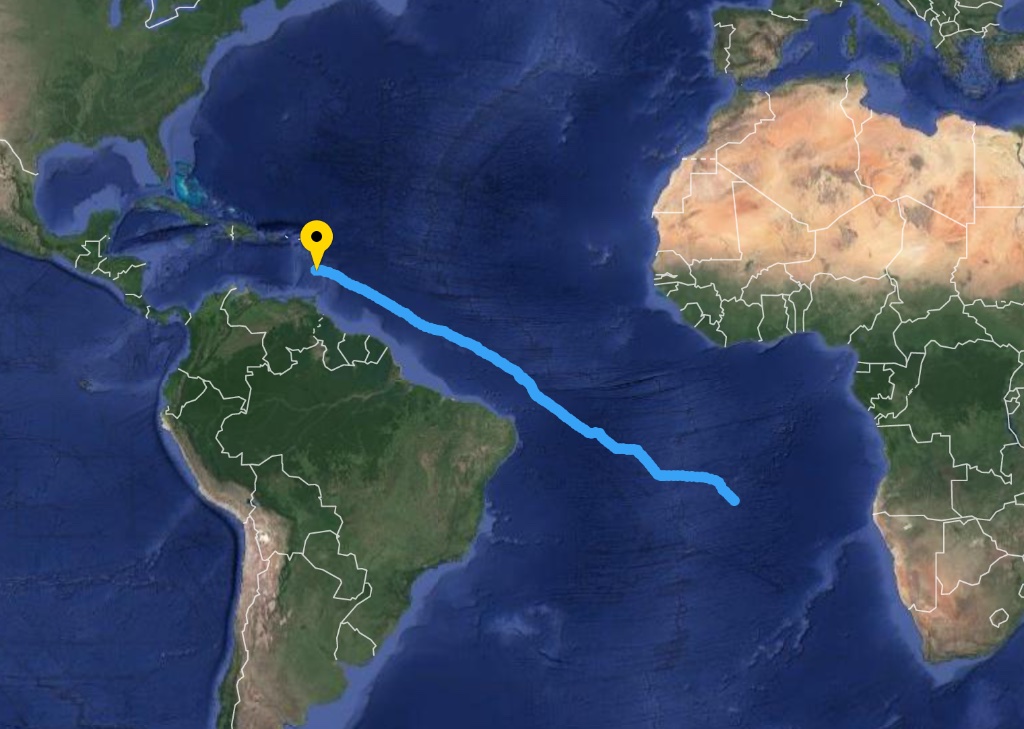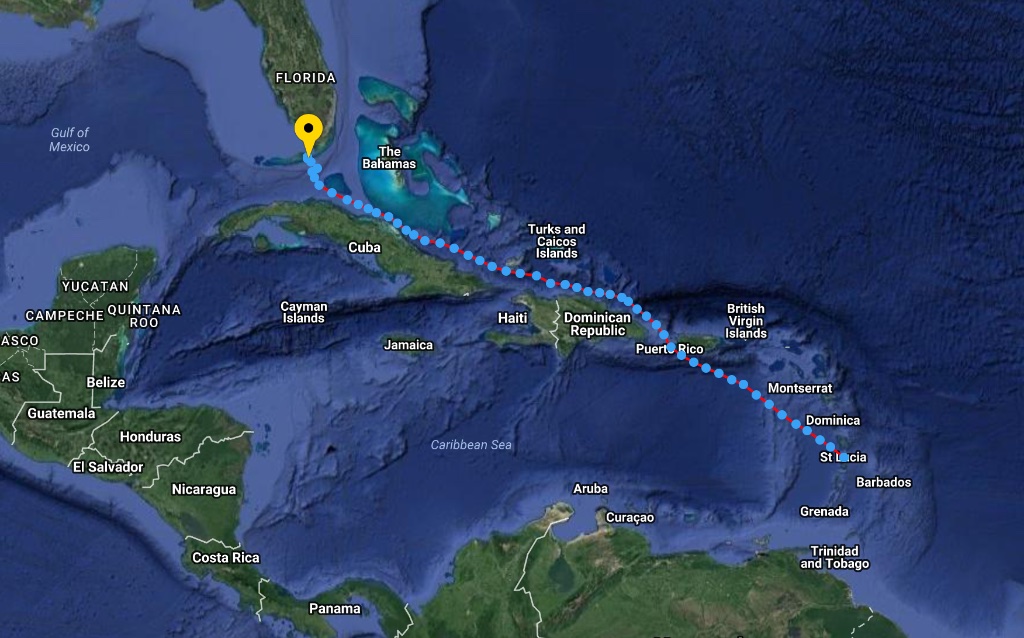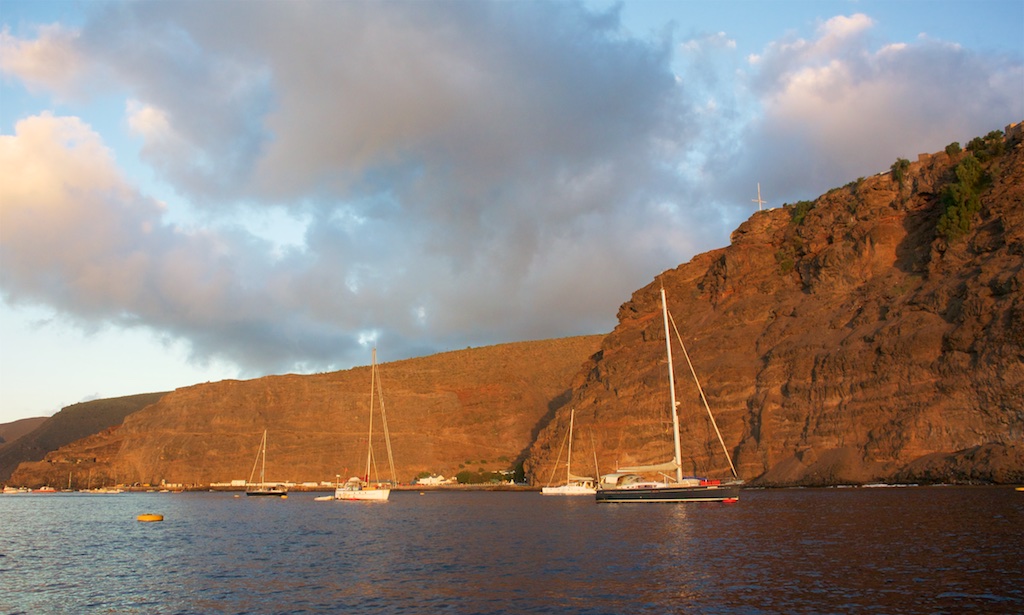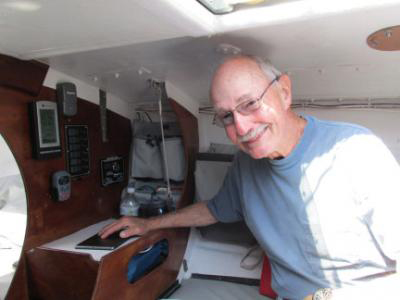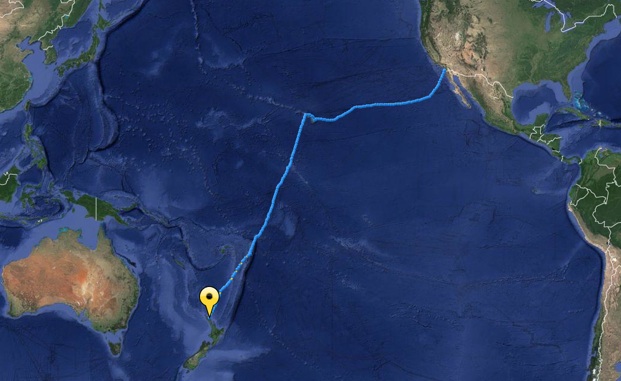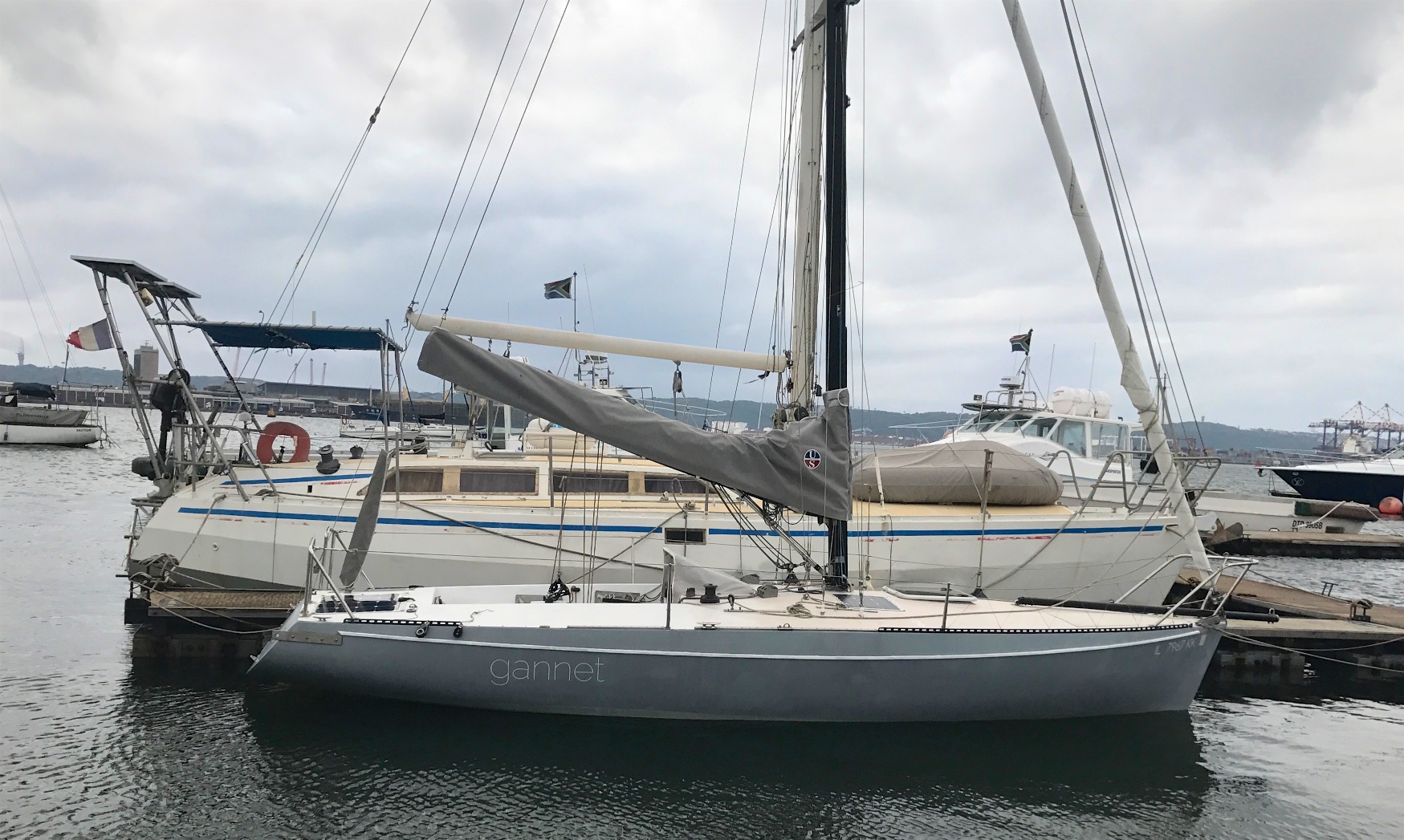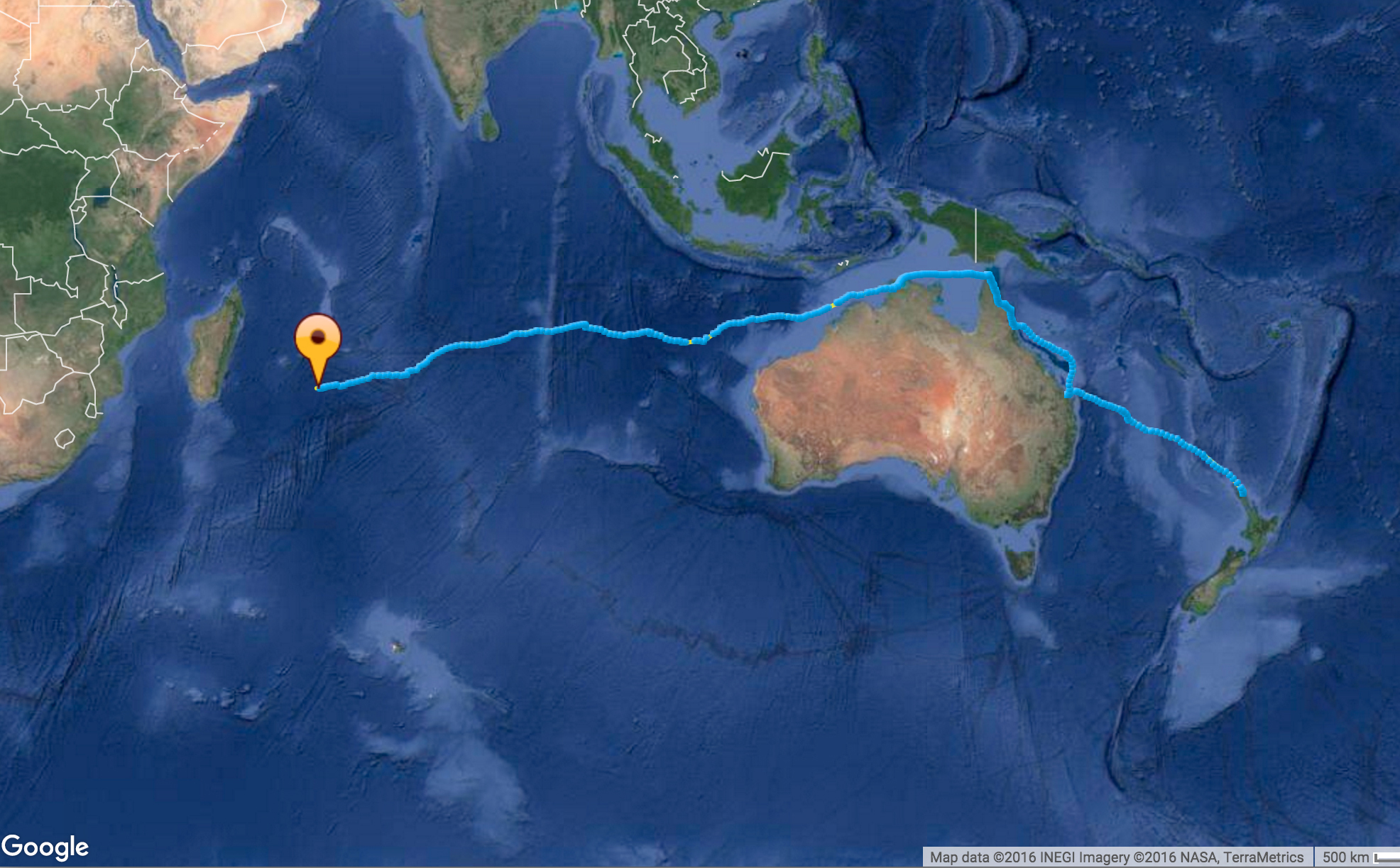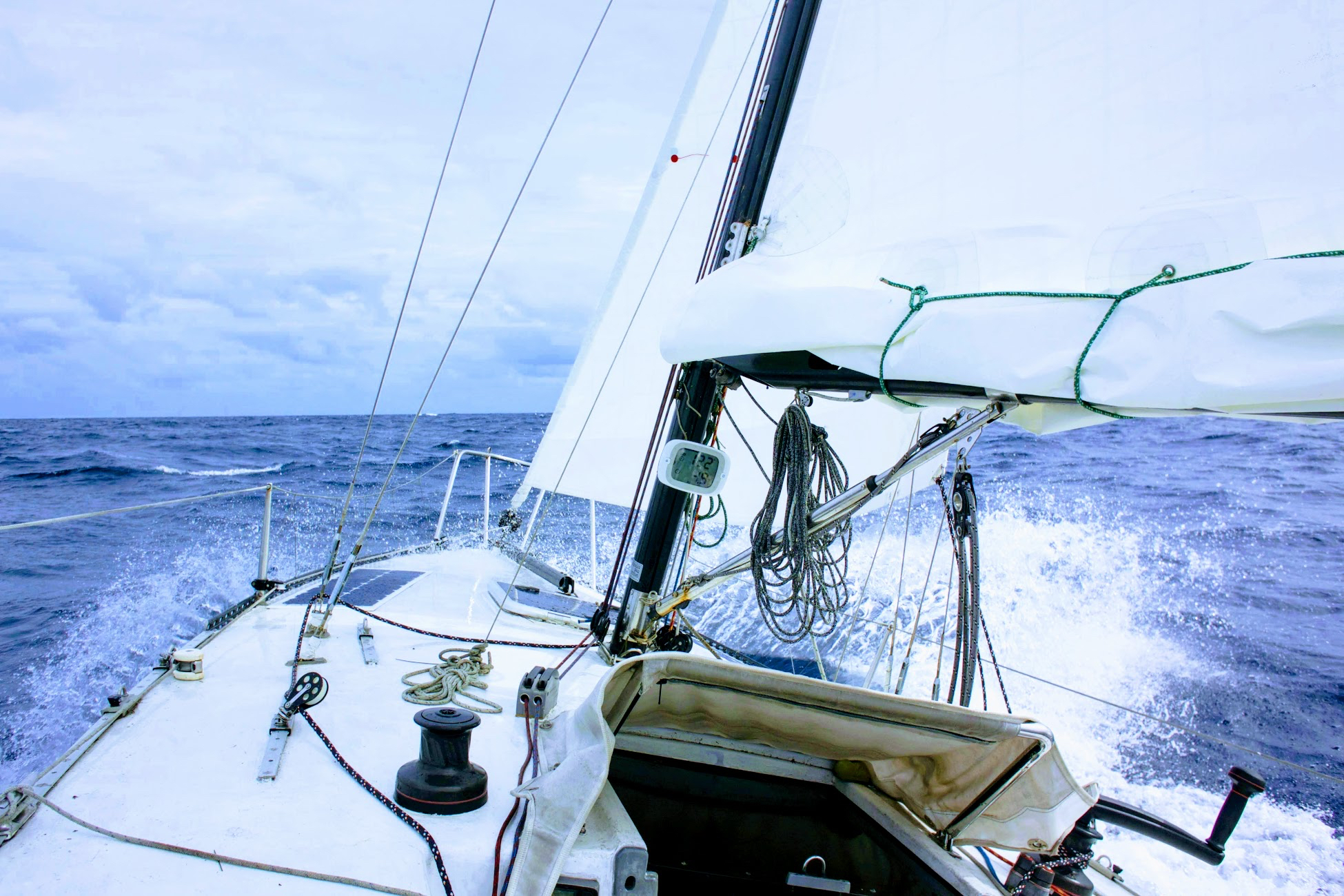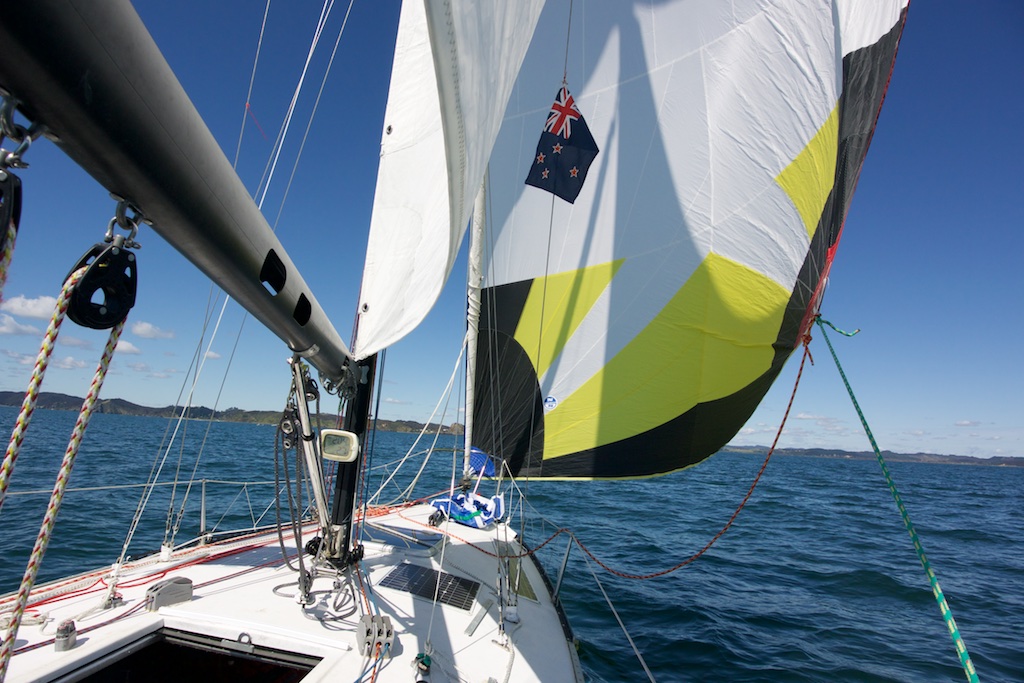Rodney Bay, St. Lucia
The Moore 24 Southern Hemisphere Fleet went out of existence at 12:35 p.m. on April 1 when GANNET crossed the Equator and returned to the weirder hemisphere after an almost three year absence. This was GANNET’s second time across the Equator and my fifteenth.
The day’s runs on the passage from St. Helena to St. Lucia add up to 3859 miles, the second longest passage GANNET has made. In the little over two months since we sailed from Durban, the little boat has crossed another ocean and covered 6423 miles.
Even more pleasing because it wasn’t planned, but serendipitous, is that we have sailed more than half the world from Darwin, Australia to St. Lucia with only two stops: Durban and St. Helena. Anchored at Darwin, Australia at 130º49’E, we are now at 60º57’W. That is more than 191º of longitude. We have also swung from 12ºS latitude to 35ºS, then up to 14ºN. Daily runs from Darwin to St. Lucia total 12,337 miles, and miles since leaving San Diego 22,016. Not bad for a little boat intended to day race around buoys.
 Much of the passage was slow and dry. More than usual I was able to stand in the companionway, sit on deck and sail with the forward hatch open. However, we were seriously slowed by the doldrums where we had by far GANNET’s slowest week ever of 458 miles. Her previous slowest was 678.
Much of the passage was slow and dry. More than usual I was able to stand in the companionway, sit on deck and sail with the forward hatch open. However, we were seriously slowed by the doldrums where we had by far GANNET’s slowest week ever of 458 miles. Her previous slowest was 678.
While I often used sheet to tiller steering, the Pelagic tiller pilot steered through some severe conditions, including torrential rain one morning that felt as though we were sailing under a waterfall. I still use the remaining Raymarine at times because it is quieter than the Pelagic, but the Pelagic has steered perfectly though weather that would have killed a Raymarine. I am very impressed.
I am pleased with the spray hood fitted in Durban. It succeeded in keeping some water out of the boat and unexpectedly also was useful as a sun screen and wind scoop.
An expensive fiasco came when the shackle let go at the tack of the G2 when I went to furl it. This was my fault for not seizing the shackle, which I routinely do but obviously didn’t in this case. The sail, still connected at the head and by sheets, streamed horizontally ahead of us. I managed to get it down and back on board without dumping it in the sea, but not before one of the sheets caught around the Velocitek, playfully plucked it from its mast bracket and tossed it overboard.
There was other damage. The two remaining Aurinco solar panels died, bringing their failure rate to a perfect 9 for 9. The two Solbian panels provided enough charge with judicious use of sheet to tiller steering.
The Raymarine masthead wind unit stopped sending wind speed after being immersed in a masthead in the water knockdown on the passage from Durban to St. Helena. It is still sending wind angle, particularly useful with sheet to tiller.
And yesterday the Torqeedo battery died and I had to be towed into the marina. Normally I would have anchored outside, but I want to be in the marina because Carol is flying here for a week.
The battery was showing 99% charge when I started to power in. Then a few minutes later 4% and it died. These batteries are hazardous material and can’t be taken on airplanes, so I may be engineless until I reach Florida, not a problem once I get clear of the marina slip.
The plan is to sail from here to Florida after Carol’s visit, possibly stopping in the Virgin Islands. In Florida I’ll lay the little boat up and return to the flatlands for a while. Time and chance permitting, I’ll sail from Florida to Panama and then to San Diego to complete the voyage next spring.
I have many character defects, a known one is that when I get close to the bottom of a bottle I think I might just as well finish it, only to discover that after I’ve poured, there is twice as much as a usual drink in the glass. Thus, last evening with the end of passage Laphroaig. Careful experimentation has proven that trying to pour from the glass back into the bottle results in shameful wastage. Once poured, there is only one reasonable course, which I followed.
Four weeks before I reached St. Lucia, the JetBoil stove failed because the gas canister connection threads stripped. The connection is aluminum. Threading on a canister on land is easy. Sometimes on a lively boat it isn’t. In any event, I couldn’t use the stove. Carol is bringing a new one out to me. I had a back up stove of a different make but hadn’t looked at it for years. It was corroded and unusable, too, so for quite some time I have been drinking air temperature instant coffee and eating uncooked freeze dry food soaked in air temperature water. I’ve done this before. Some is better than others. Some that is good heated is terrible unheated. Fresh, cooked food upon my arrival was even more appreciated than usual.



